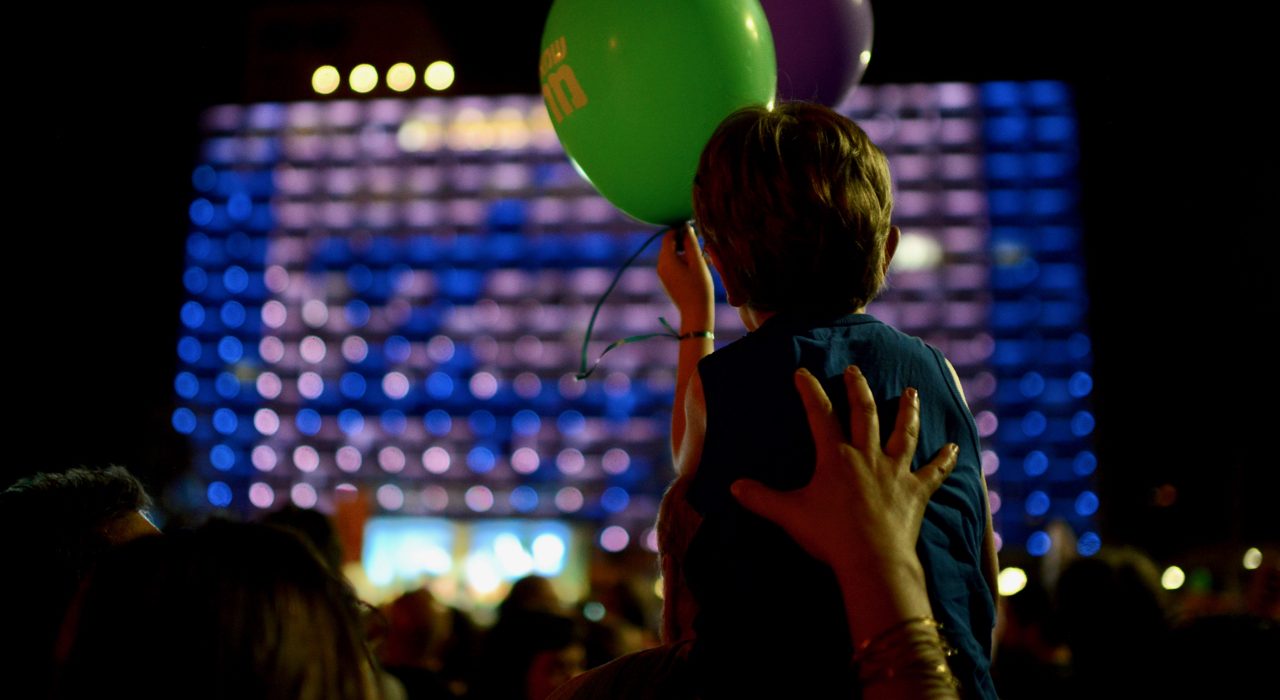- About Us
- Policy Center
- Learn
- Press Room
- Blog
- Get Involved
- Donate
- Donate to J Street Online
- Make a Gift in Someone’s Honor or Memory
- Make a Monthly Gift
- Tax-Deductible Donations
- Giving by mail
J Street’s blog aims to reflect a range of voices. The opinions expressed in blog posts do not necessarily reflect the policies or view of J Street. All of the photos in this blog are courtesy of the author, Gili Getz.
Last month, I marked the fiftieth anniversary of the occupation in a deeply meaningful way – by celebrating shabbat with an unprecedented coalition of Palestinian, Israeli and diaspora Jewish activists in the “Sumud Freedom Camp” in the South Hebron Hills. Our group featured the largest delegation of diaspora Jews ever to engage in direct, non-violent action against the occupation.
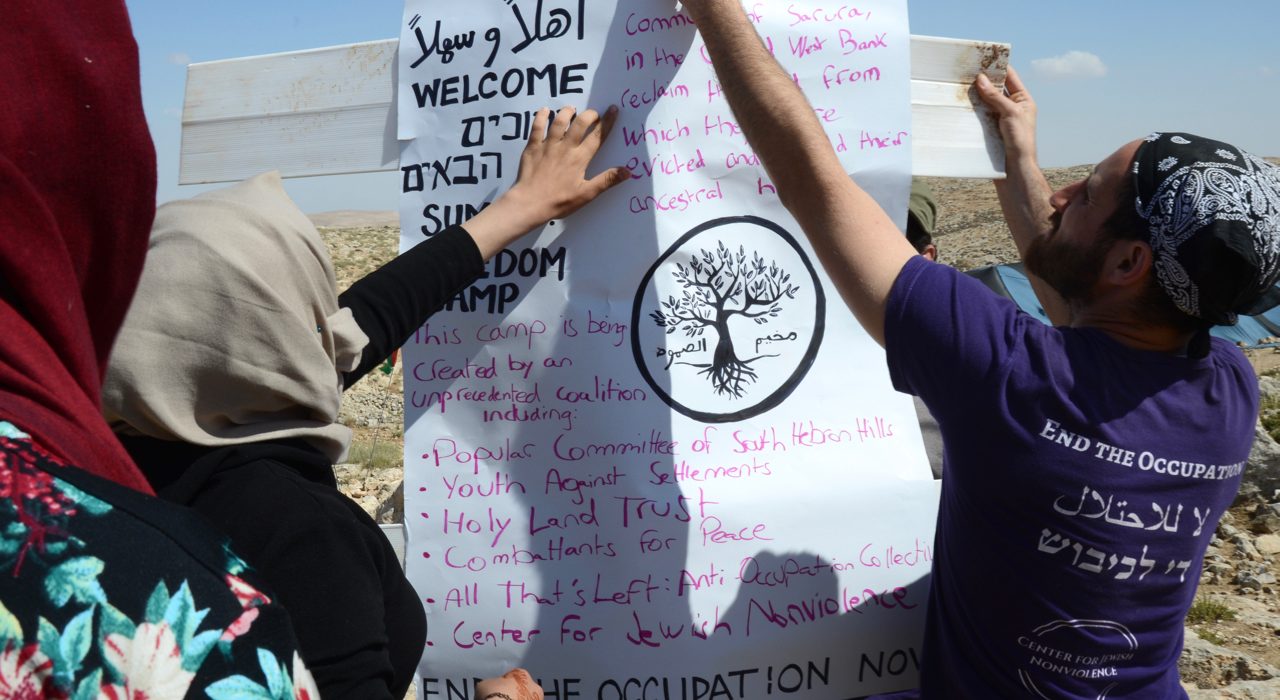
More than 130 Jews from around the world participated in our trip to Israel and the West Bank, organized by the Center for Jewish Nonviolence. The delegation included participants from a number of anti-occupation, pro-peace groups, including a wide range of ages, backgrounds and levels of religious observance. Some had past experiences in the West Bank, while it was the first time for others.
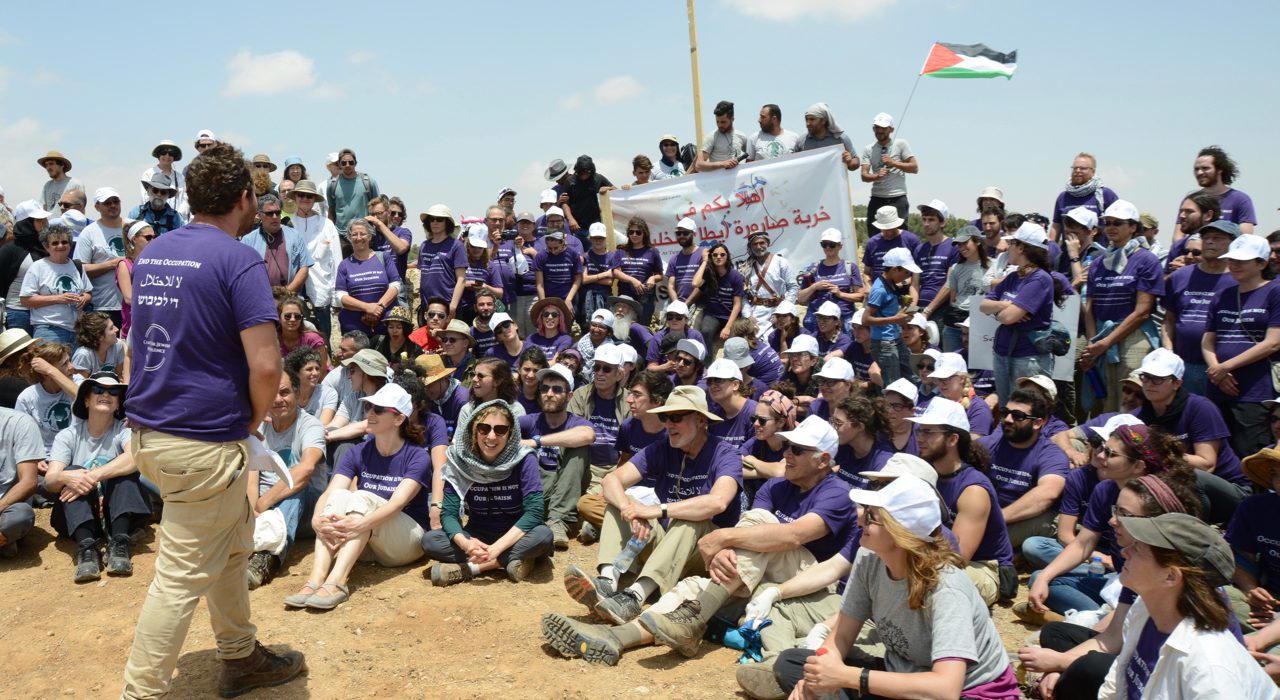
From the first moments of our trip, we experienced the visceral, disturbing reality of occupation. We saw it in the simple rudeness directed at our Palestinian partners when they asked a soldier a question about arbitrary movement restrictions. We saw it in intimidating acts of settlers, and the cruel bureaucracy that is designed to expropriate Palestinian land and promote despair. There was also no shortage of threats of violence – and even, in some cases, actual violence — sometimes even at the hands of the Israeli military and border police.
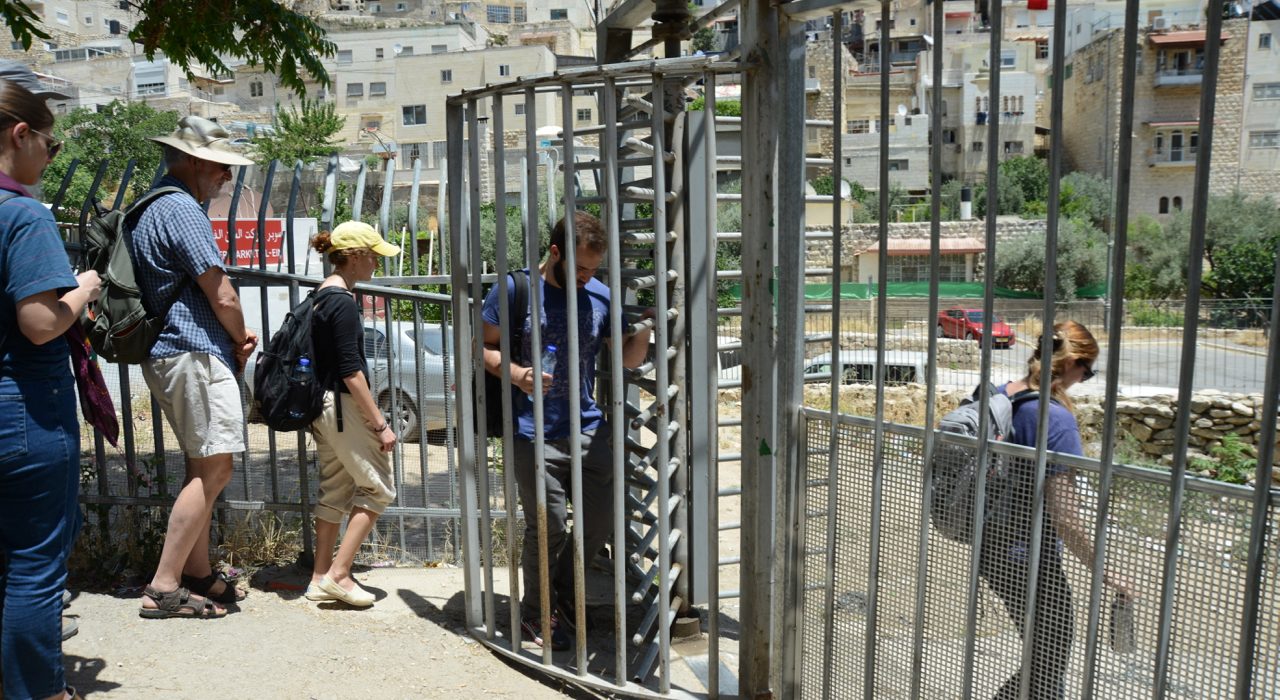
We helped the communities clean up trash, pull weeds and paint murals. We acted as buffers, trying to shield our Palestinian partners from settler intimidation and harassment. Most importantly, we built meaningful relationships with the members of these communities.
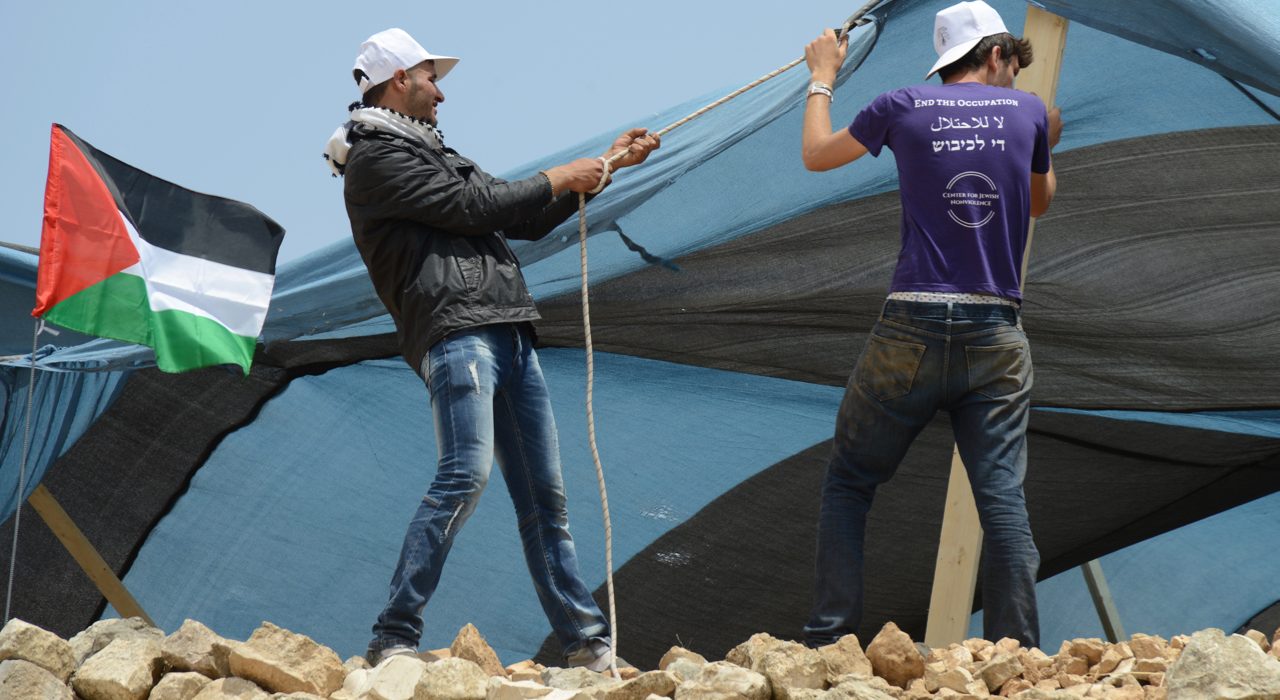
Our historic coalition established “Sumud Freedom Camp” at the Palestinian village of Sarura in the South Hebron Hills. The village’s residents had been expelled following violent harassment from Israeli settlers. Their land was confiscated by military order, while the nearby illegal settlement of Maon was allowed to flourish and expand. We helped Fadel Amer and his family, residents of the village, to return to their home.
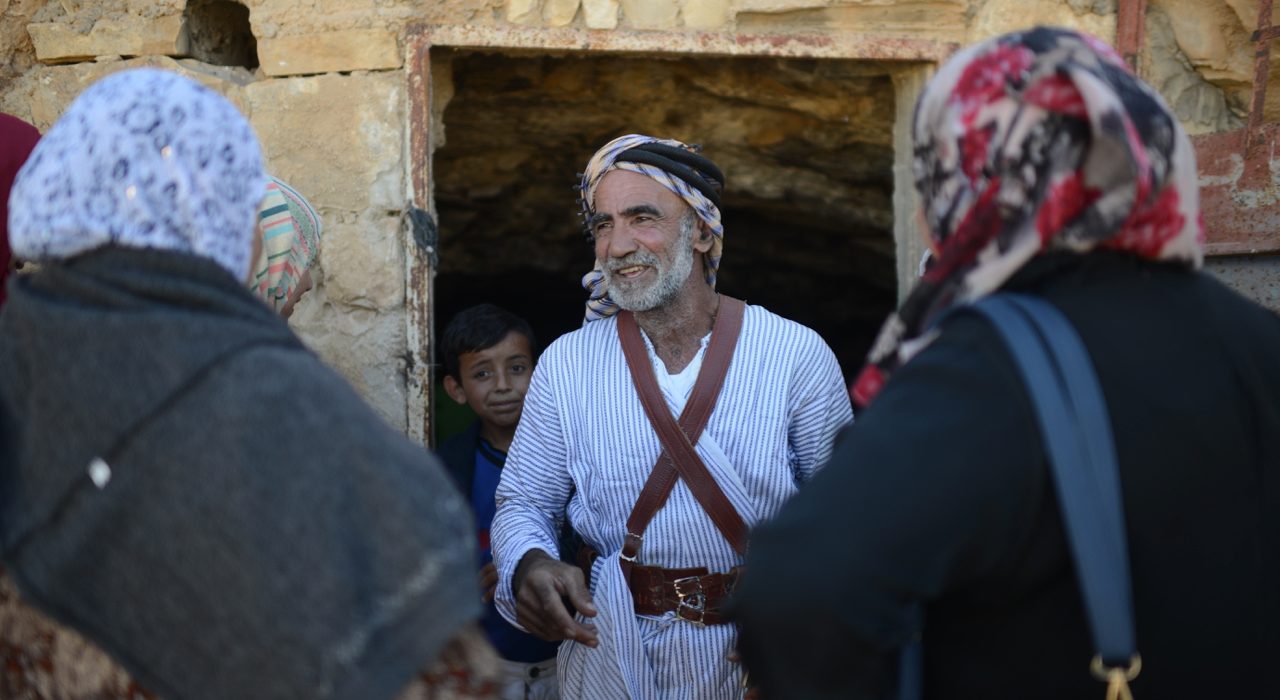
During the trip, I witnessed moments of cruelty that have nothing to do with keeping Israel safe and everything to with intimidation and dispossession. But I also witnessed incredible solidarity and a beautiful sense of shared struggle across barriers of religion, race and nationality.
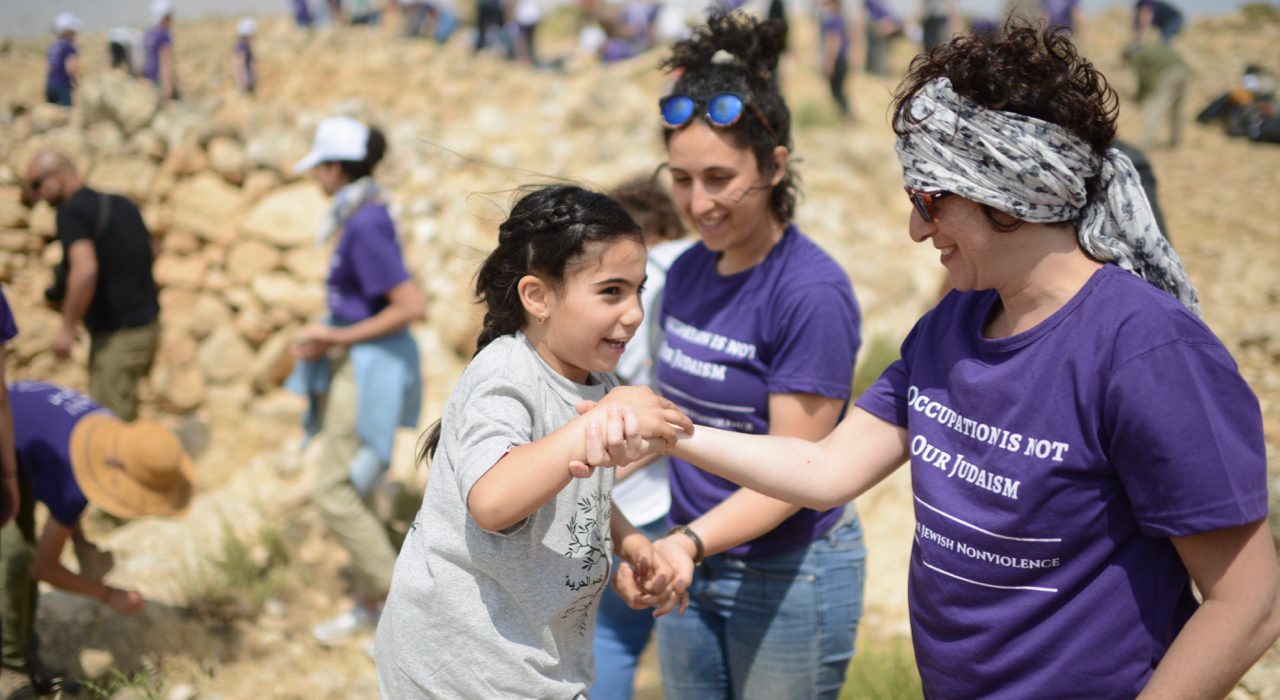
Like the vast majority of the American Jewish community, I believe that peace and an end to the occupation must be negotiated between Israelis and Palestinians. But I also believe that as American Jews, we have an important role to play in bringing that about. Showing up for our partners on the ground is one of these ways. They need us now more than ever. Our presence makes a real difference.
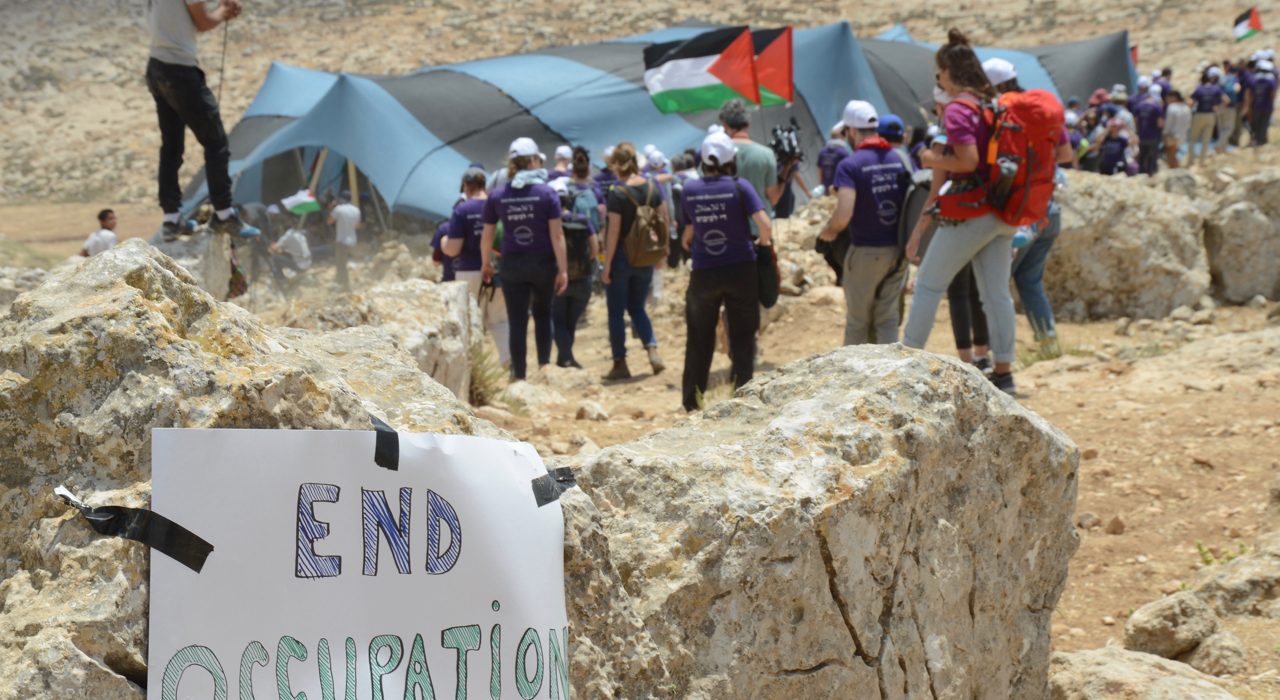
I finished my trip in Tel Aviv’s Rabin Square, joining tens of thousands of Israelis who defied cynicism and despair by rallying for peace and against 50 years of the occupation. We heard speeches by political leaders from the Zionist Union, Meretz and the Joint List, and from a former IDF Major General in charge of the West Bank. I got to see both old friends and many of the new ones I made at the Freedom Camp. The speakers at the rally eloquently articulated the many reasons to end the occupation — its consequences for Israeli security and democracy as well as the critical importance of freedom and justice for the Palestinians. It is our obligation to stand with our Israeli and Palestinian partners, work hard for a two-state solution and declare that fifty years of occupation is fifty years too many.
